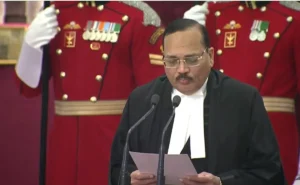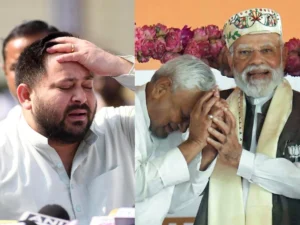When justice finally comes for victims of terrible crimes, communities often feel relief and closure. The recent death penalty for Visakhapatnam’s mass murderer represents exactly this kind of legal resolution that brings some peace to affected families.
The court’s decision marks another significant moment in India’s ongoing battle against violent crime. Legal experts believe these harsh sentences serve important roles in deterring future criminal activity throughout the nation.
Death Penalty For Visakhapatnam: Understanding the Case Details
Courts heard evidence about multiple deaths that shocked local residents and law enforcement officials alike. The accused faced charges related to several brutal killings that occurred within a short time frame in the coastal city.
Witness testimony painted a clear image of planned attacks that targeted innocent victims without an apparent motive. Police investigations revealed disturbing facts about how these crimes were carried out with calculated precision.
The prosecution built its argument around:
- Physical evidence found at multiple crime scenes
- Eyewitness accounts from surviving victims and bystanders
- Digital traces linking the accused to specific locations
Legal Process and Court Proceedings
During trial proceedings, defence lawyers attempted to argue for reduced charges based on mental health considerations. However, the court found these arguments insufficient given the severity and scope of the committed crimes.
The judge cited aggravating factors while announcing the final verdict that would seal the convicted person’s ultimate fate. These elements included the brutal nature of attacks and their impact on local community safety.
Legal precedent supports death sentences when crimes demonstrate exceptional cruelty and pose ongoing public safety risks. Courts must weigh every factor before making these irreversible decisions about human lives.
Death Penalty For Visakhapatnam: Community Response and Impact
Local residents expressed mixed emotions about this harsh punishment being handed down by judicial authorities. While many families wanted justice served, others questioned whether state-sanctioned death truly brings lasting peace.
Victim advocacy groups praised the court’s decision as appropriate given the scale of violence inflicted. They argue that severe punishments protect other potential victims from similar tragic fates.
Meanwhile, human rights organisations continue raising concerns about capital punishment policies across India’s legal system. These groups advocate for life imprisonment as a more humane alternative to sentences.
Broader Implications for the Justice System
This case highlights ongoing debates about India’s approach to handling the most serious violent crimes. Legal scholars point toward an increasing trend of courts imposing death sentences for mass murder cases.
The decision reflects judicial commitment to protecting public safety through severe consequences for extreme criminal behaviour. Courts face pressure to demonstrate that serious crimes bring serious punishments.
However, appeals processes often delay actual executions for years while cases move through higher court levels. Many death sentences eventually become life imprisonment after lengthy legal battles.
Death Penalty For Visakhapatnam: Expert Legal Analysis
Criminal justice experts note that death penalty cases require extraordinary evidence standards before courts reach final verdicts. The burden falls on prosecution teams to prove guilt beyond a reasonable doubt.
Defence strategies often focus on challenging evidence quality and arguing for mental health considerations that might reduce charges. Courts must carefully weigh these arguments against public safety concerns.
Legal precedents guide judges when determining appropriate sentences for crimes involving multiple victims and premeditated violence. Previous cases provide frameworks for making these difficult decisions.
Moving Forward After Tragedy
While legal justice provides some closure, communities must still process trauma from these violent events. Mental health resources become crucial for helping families heal.
Support systems help survivors cope with the ongoing psychological effects of witnessing or experiencing these tragic crimes. Professional counselling services play vital roles in recovery processes.
The court’s decision sends strong messages about society’s commitment to protecting innocent people from violent predators. Legal consequences demonstrate that communities refuse to tolerate extreme criminal behaviour.
Conclusion
The death penalty for Visakhapatnam’s mass murderer represents the judicial system’s response to crimes that shock the public conscience. While debates continue about capital punishment, courts must balance justice demands with legal standards.
These cases remind communities about the importance of supporting victims while maintaining faith in legal processes. Justice systems work best when they protect public safety while respecting human rights principles.
Moving ahead, local authorities must focus on crime prevention strategies that address the root causes of violence. Education, mental health services, and community programs create safer environments for everyone.








Be First to Comment